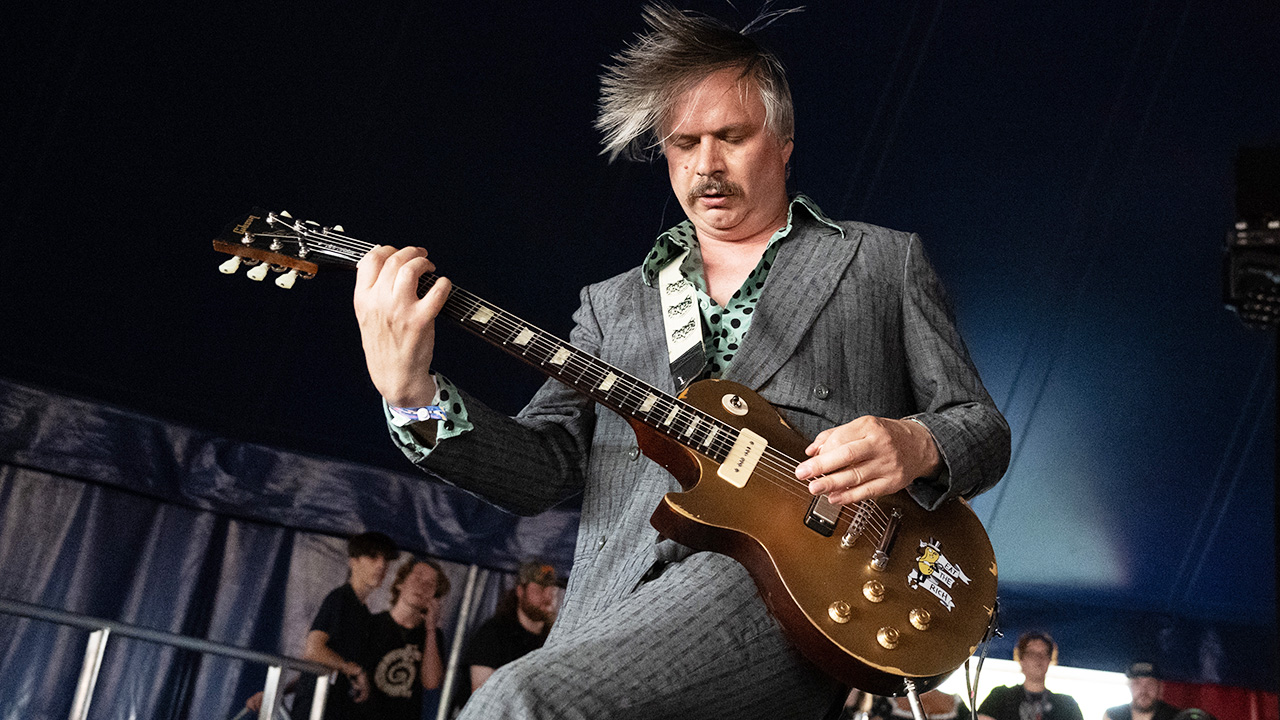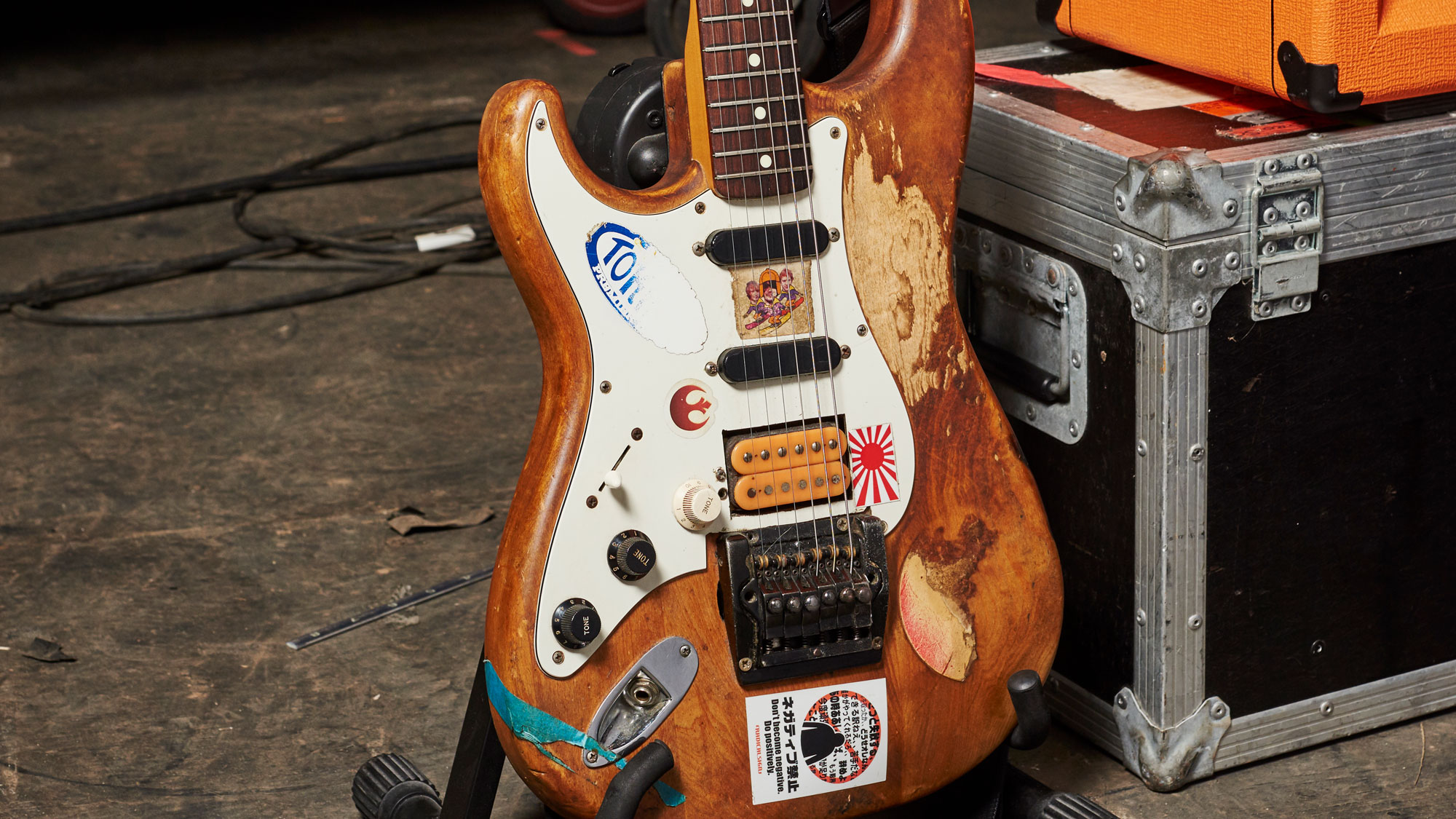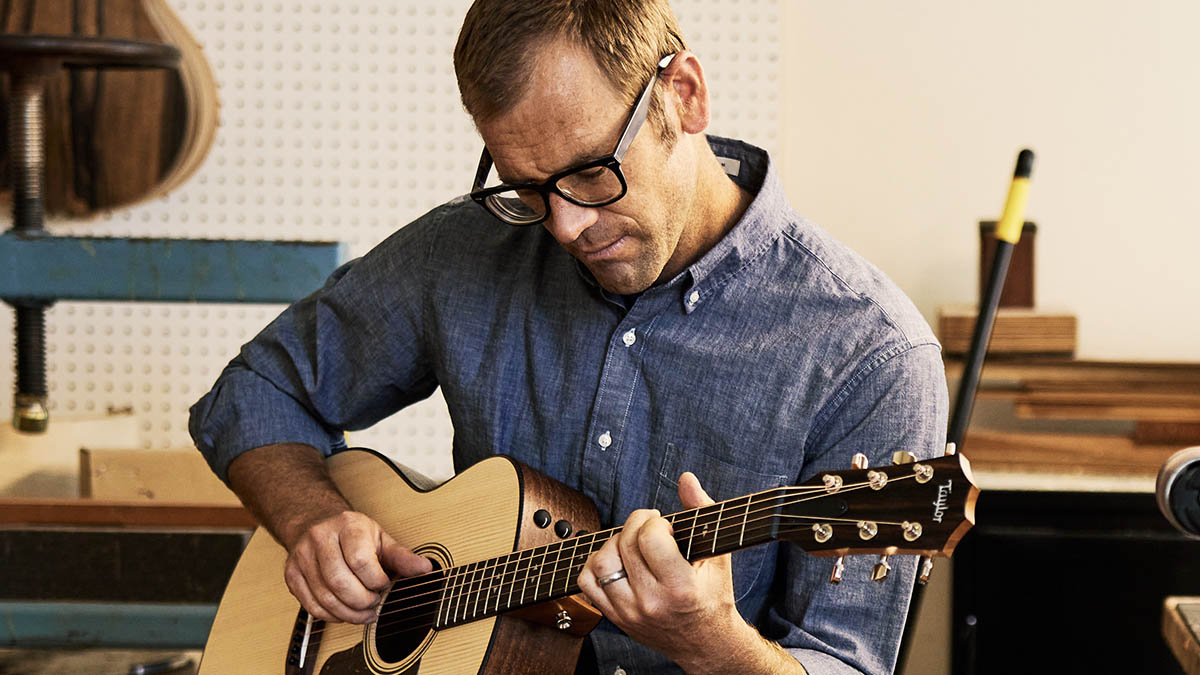“I send two delays out to an amp each and pan them. You get this glorious wash that makes you feel like you’re on drugs”: With Oceansize, Mike Vennart influenced a generation of progressive guitarists – and he’s not ruling out a reunion
The Empire State Bastard riff-meister and Biffy Clyro guitarist has produced some of his best work with his latest solo album, Forgiveness & The Grain. He breaks down his otherworldly tone secrets, and explains what made The Verve’s Nick McCabe a guitar Jedi – and why the Pro Co Rat is the only distortion pedal you need

Oceansize were the greatest cult British band of the 2000s. Once described by a local blog as “five ordinary men making something extraordinary,” their music ranged from delicate shoegaze to angular post-rock and tech metal, and has left a lasting impression on everyone from Misha Mansoor to Yvette Young and Steven Wilson.
Attend an experimental festival today like the UK’s ArcTanGent, and likely every band on the bill will have been influenced by them in one way or another.
After over a decade in Oceansize, Mike Vennart hasn’t sat on his hands. Between 2012 and 2018 he released an album with his electronic project British Theatre and two Vennart records. while holding down a day job as touring guitarist for arena rockers Biffy Clyro.
He also dealt with the fallout from a scrape with far right politics that led to death threats. In 2018, he confronted a far-right agitator in public, and the angry exchange was livestreamed, resulting in large-scale trolling of Vennart and his family by the agitator’s followers. Along with promises of violence, the campaign included attempts to have him fired by his management and Biffy Clyro.
His 2020 pandemic effort In The Dead, Dead, Wood was an instant fan favourite, with a darker mood and a twist on the sounds and structures that fans of Oceansize had loved. It was followed last year by the release of Rivers of Heresy, from his extreme metal supergroup Empire State Bastard, featuring Simon Neil of Biffy Clyro and Dave Lombardo of Slayer.
Now he’s back with Forgiveness & the Grain – a tight, punchy record that’s unlike any of those that came before: unstudied, loose, yet at times crushingly heavy.
It’s great to see the Empire State Bastard record in the light of day. Wasn’t there a joke about that band on your MySpace back in the ‘00s?
All the latest guitar news, interviews, lessons, reviews, deals and more, direct to your inbox!
“I don't think so – it was more like 2009/10 that it started. Around that time, me and Simon were talking about doing something, a fake band, and everybody was in it. Tim Smith [Cardiacs] was in it… It was called Analcrysis. We were smoking a lot of weed back then, man. Everything was a lot less funny than we thought it was!”
So when did it actually become a real project?
“Simon started talking about Empire State Bastard in the press before we’d even written a single tune. The pressure was on me to come up with the vibe, and I couldn’t do it. I wrote a bunch of stuff but it was very scattered.
The Rat is basically the best distortion pedal known to man… if you’ve got a Rat, you are covered
“Some sounded like a metal Cardiacs, some of it sounded like Yeezy, some of it sounded like a shit Rolo Tomassi, and I put it on ice. Once I’d put out a couple of solo albums, I got the fire back in my belly and got my confidence back up.
“I realized what I needed to do. That coincided with that awful far-right bullshit, which got the sufficient level of rage in me to put down something that was authentic.
“While it’s a thrash metal album, it’s a doom metal album, and there’s a bit of grindcore in there. I think you can still tell it’s from the guy out of Oceansize – it’s got that wonky timing. I think ESB will remain a little playful, as metal is kind of ridiculous, and I like that. If it’s going to be heavy, make it ridiculously heavy, you know?”
In light of that, how do you see the new record sitting in your discography? It feels like there’s an influence carrying over from Rivers of Heresy.
“I’ve always really loved drone metal and noise records, so the last two have gone a bit further down that path. The song Fractal, I was going to make the whole album like that; I was like, ‘Fuck it, I’ll make songs that are just loads of layers of guitars and no drums.’ I’ve always loved Swans and Sunn O))) and black metal, but it was never something that I saw fit to integrate.”
What changed?
“I went to see this band called Big Brave at Soup Kitchen in Manchester, and they did this big, droning tom thing, and I came back the next day and wrote Seventy Six. I instantly knew that was going to be the last song on the record.
“Elsewhere, the song Casino is quite deliberately a reference to Nick McCabe and his playing on the first couple of Verve records, which is just fucking incredible guitar Jedi sorcery. Just fucking beautiful. That was born of an improvisation, just playing and getting yourself into a hypnotic state. It’s almost meditative.”
What gear got used on the record – the same as rig you use with Biffy?
“It's my Matamp GT-1, made in Yorkshire, and my 2x12 Matamp cab with a couple of mics on. I used the Matamp GT-1 and my old Orange Retro 50. They're pretty much the best amps I've ever used, and I love them so much.”
Guess your Japanese Squier features heavily?
I force myself to show up to work everyday, plug some stuff in, and from the most random seed, a song can come
“The usual old reliable guy, still kicking. It’s still got it, man; it’s still the best. I used my old Jazzmaster with a P-90 in the back for loads of stuff, then an Epiphone Casino for the song Casino – that’s great. R U the Future? is an Eastwood baritone, a Sidejack.
“Seventy Six has got some Les Paul in C standard on it. C standard is very much my Empire State Bastard tuning. I fucking love it – it’s so fucking heavy. Throw some big fat heavy strings on it and you’re golden. The riffs just write themselves.”
How did the writing process work?
“I force myself to show up to work everyday, plug some stuff in, and from the most random seed, a song can come. I’ve just realised as we’re having this conversation that it’s the first record I’ve ever done where every single song was written on guitar.

“I never fucking do that – every single one of them! The first song, Whereupon I Immediately Did Nothing, there’s no guitar on it, but I wrote it on guitar. Every single chord is exactly as it was. Gambler just transcribed it from the guitar part, then I just turned the guitar track off.”
Did we hear a Red Panda Particle pedal on R U The Future?
“You did – that’s right! The Lifepedal is on Seventy Six. I got the last two production models. It’s fucking great, because the Rat is basically the best distortion pedal known to man anyway. It does everything. If you’ve got a Rat, you are covered.
“On The Japanese No there’s a pedal called the Time Shadows all over it. That’s a one-off collaboration between EarthQuaker and Death by Audio. So the song was originally called Time Shadows. I love Death by Audio – I’ve got so many of their pedals. They all do kinda the same thing: they just make a fucking horrible noise, but I’m so here for it.”
Even the stock Rat is pretty underrated, to be honest.
“Most boutique pedals are based on the Rat. Everybody just makes a modified Rat. Just get a Rat! It’s fucking perfect.”
You’re known for using a lot of delays. Anything else get a look-in?
“I’ve got the Boss DM-2 and DD-7, and I send them out to an amp each. It’s actually my old Oceansize trick; I used to do it with three amps. Send a different delay to each of them and pan them. You just get this glorious fucking wash that makes you feel like you’re on drugs.”
Now it’s been 10 years since the Oceansize split, do you ever think about getting the old band back together?
“I get asked that quite a lot, and in all honesty I’d do it. I’ve made my point. It’s not like I’m champing at the bit to reform the band; but you know my party line is that I was the poetry in Oceansize; I was the romantic element of the band.
“At the moment, from a similar mindset I have a perhaps over-romanticized notion: we’d get the band back together, headline ArcTanGent, and all walk away being mates again. I’d love for that to happen, but it’s not realistic.”
How do you feel about your legacy at this point? You as a player and the old band are namechecked a lot these days.
I’ve got this perpetual grounding: ‘My tunes aren’t in Fortnite and I’m not in Star Wars’
“I’m an eternal cynic, you know. Since the Empire State Bastard record last year people have quite frequently come up to me and gone, ‘Oh my God, love what you do.’ That’s fucking amazing – but quite often I’m sat with my 11-year-old boy who thinks that what I do is just a fucking colossal embarrassment.
“So I’ve got this perpetual grounding of like, ‘My tunes aren’t in Fortnite and I’m not in Star Wars.’ In answer to the question, though: sometimes on a good day, I can really get a hold of myself and go, ‘People really like what you do, man.’ In all honesty, it’s enough.”
- Forgiveness & The Grain is available now via Bandcamp.
Alex Lynham is a gear obsessive who's been collecting and building modern and vintage equipment since he got his first Saturday job. Besides reviewing countless pedals for Total Guitar, he's written guides on how to build your first pedal, how to build a tube amp from a kit, and briefly went viral when he released a glitch delay pedal, the Atom Smasher.



